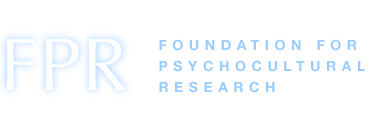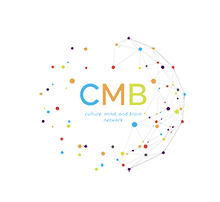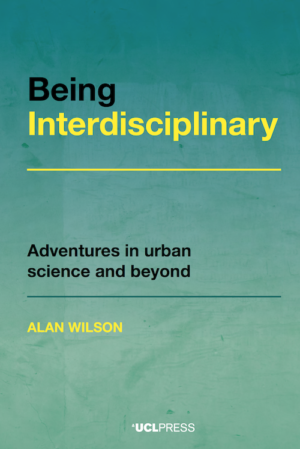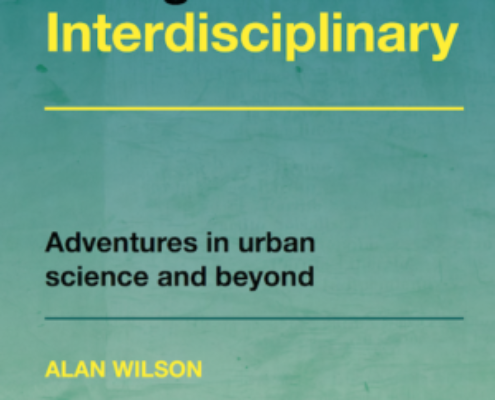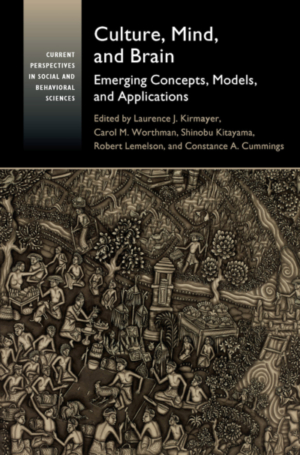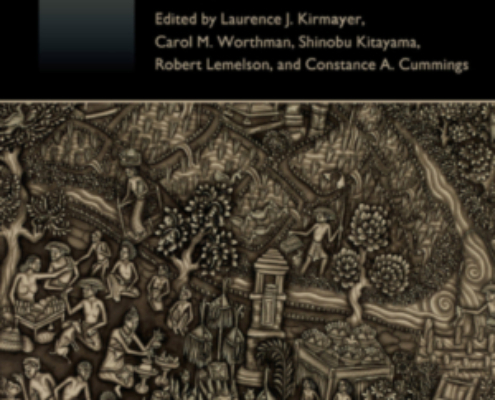CMB NETWORK FALL MEETING, OCTOBER 20–22, 2022
THURSDAY, OCTOBER 20, 2022 |
||
| 1:30–1:50 | Welcome: Introduction from CMB Meeting Host and Moderator (20 mins) | Robert Lemelson |
| SESSION 1: HOT TOPICS (* = includes abstract in sidebar) | Moderator: Robert Lemelson | |
| 1:50–2:00 | The Perceptual Motor Hypothesis* | Dietrich Stout |
| 2:00–2:10 | Prison Brain: The Next Frontier in NeuroLaw for Criminal Justice Reform* | Sally Seraphin |
| 2:00–2:10 | SEAMH Initiative* | Kathy Trang & Seinenu Thein-Lemelson |
| 2:20–2:40 | Breakout (20 mins) | |
| 2:40–2:45 | Summary (5 mins) | |
| 2:45–3:00 | COFFEE BREAK | |
| 3:00–3:10 | Critical Empathy* | Chikako Ozawa-de Silva |
| 3:10–3:20 | Is There an Avatar Faculty?* | Jeff Snodgrass |
| 3:20–3:30 | The Cultivation of the Imagination* | Michael Lifshitz |
| 3:30–3:40 | What Are We Polarized About? | Samuel Veissière |
| 3:40–3:50 | Title TBD | Kathy Trang, Maria Gendron |
| 3:50–4:10 | Breakout (20 mins): Ask each person to name a discussion point from their hot topics for breakout groups | |
| 4:10–4:15 | Summary (5 mins) | |
| 4:15–6:00 | Patio Gathering, for those who wish | |
| 6:30 | DINNER AT PLATEIA RESTAURANT |
FRIDAY, OCTOBER 21, 2022 |
||
| SESSION 1, Cont’d: HOT TOPICS | Moderator: Chikako Ozawa-de Silva | |
| 9:00–9:10 | A Study of “the Rest” | Shinobu Kitayama |
| 9:10–9:20 | Rethinking the Ecology of Mind in the Light of Contemporary 4E Cognitive Science* | Laurence Kirmayer |
| 9:20–9:30 | Action Landscapes and Social Homeostasis* | Carol Worthman |
| 9:30–9:40 | How Can We Bring the Neuro- and Social Sciences Together? | Daniel Lende |
| 9:40–10:00 | Breakout (20 mins) | |
| 10:00–10:15 | Summary and Emergent Themes (15 mins) | |
| 10:15–10:30 | COFFEE BREAK | |
| 10:30–12:00 | SESSION 2: Being Interdisciplinary (A. Wilson, 2022): Models, Concepts, and Practices) | Moderator: Dietrich Stout |
| Concepts [follows Western format for empirical inquiry]
1. System of interest 2. Articulate theory 3. Draw testable hypotheses and identify methods to test 4. What about qualitative and other modes of inquiry? Superconcepts: Transferrable concepts that can cross disciplines. What are our superconcepts? Examples from Wilson:
Research on vs. research for: What’s the difference? How do we prioritize? |
||
| 12:00–1:30 | LUNCH BREAK |
| SESSION 3: Exercises building on our hot topics | ||
| 1:30–3:00 | Part 1 | |
| Four rounds (total) for breakout discussions comprising 30 mins exercise, 15 mins share-in.
Round 1 – Moderator: Kathy Trang
Round 2 – Moderator: Laurence Kirmayer
|
||
| 3:00–3:15 | COFFEE BREAK | |
| 3:15–4:45 | Part 2 | |
Round 3 – Moderator: Shinobu Kitayama
Round 4 – Moderator: Michael Lifshitz
Building on previous rounds, how would we change how (and why?) research is done, by whom, and for whom? What would decolonized, inclusive research look like? |
||
| 4:45–5:00 | Finalize what members want to discuss on Day 3 (continuing the network? training and mentoring? publications?) | |
| 5:00–6:00 | Patio Gathering, for those who wish | |
| 6:30 | Dinner at Rob and Seinenu’s [meet in lobby at 5:45pm] | |
SATURDAY, OCTOBER 22, 2022 |
||
| SESSION 4: Interdisciplinarity and Thinking About the Future / Keeping the Network Going / How Can We Make a Difference / Do Better? / What Constitutes Inclusive? (with suggested discussants) | Moderator: Jeff Snodgrass | |
| 9:00–10:30 |
|
|
| 10:30–10:45 | COFFEE BREAK | |
| 10:45–12:30 | Public outreach and publications | Moderator: Daniel Lende |
| 12:30–2:00 | LUNCH BREAK | |
| 2:00–3:45 | Inclusiveness, other topics TBD | Moderator: Samuel Veissière |
| 3:45–4:00 | COFFEE BREAK | |
| 4:00–5:00 | Network takeaways, other topics TBD | Moderator: Carol Worthman |
| 6:30–8:00 | Dinner at Skylight Gardens, 1139 Glendon Avenue, Westwood [meet in lobby at 6:00 to walk to venue] | |
SUNDAY, OCTOBER 23, 2022 |
||
|
|
Travel day | |
Meeting Logistics
Related Texts, “Hot Topic” Abstracts, 2020 “Burning Questions”
Click on images to link to full text of Being Interdisciplinary and the Epilogue on Interdisciplinarity in the 2020 CMB volume.
The Perceptual Motor Hypothesis (Dietz)
Members of the CMB network share an interest in the embodiment of human experience, cognition, and culture. Arguably, much of this interest is focused on “embodiment” as the reciprocal influence of internal bodily states on cognition and behavior of cultural behaviors and meaning on bodily well-being. I would be interested to better integrate this focus with my own interest in embodied cognition in the sense of active engagement with the external world (e.g., focusing on bodily techniques and practices (Mauss, 1936, Bourdieu, 1977), organism-environment coupling and active perception (Gibson, 1966, Reed, 1996), and situated action (e.g., Thelen and Smith, 1994)) or, more simply, “thinking by doing.” Building on this focus, I recently suggested a Perceptual Motor Hypothesis (PMH) for the evolutionary-developmental-cultural construction of human cognition from ancient primate systems for body awareness and sensorimotor engagement with the world. The PMH proposes that increasing sensorimotor acuity and experience in a culturally-constructed technological niche guide construction of increasingly sophisticated internal predictive models for action production and perception. Sensory predictions by these models support the sense of agency and self-other discrimination that underpin human self-awareness, imitation, social cognition, and empathy and ultimately the development of “Theory of Mind” capacities. The PMH as framed is heavily influenced by predictive processing accounts of brain function and emphasizes processes directly supporting the production (and cultural reproduction) of skilled action. It recognizes the importance of self-control, emotional attachment, prosocial motivation, and ToM in supporting cultural learning, but has less to say about mechanisms supporting these capacities. I would thus be especially interested in working with network members to help redress this conceptual imbalance. My initial idea was to focus on bio-behavioral synchrony as a mechanism with interacting perceptual-motor, physiological, and neuroendocrine elements that plays a key role in affiliative bonding as well as the interactive alignment of mental representations during pedagogy and the coordination of joint action. However, I would be very open to other suggestions of interesting ways to explore the interaction of exteroception and interoception in cultural learning.
Prison Brain: The Next Frontier in Neurolaw for Criminal Justice Reform (Sally)
A combination of deinstitutionalization and harsh prosecutorial or legislative actions have culminated in the mass incarceration of millions of people in the United States. The experience of incarceration itself serves as a further injury to the incarcerated person’s body and mind. Focusing on retribution and incapacitation instead of rehabilitation, American prisons punish through a range of dehumanizing practices that not only fail to “correct” but fundamentally exacerbate individual difficulties leading to criminalization. Those in custody include many who are already failing to thrive because of mental illness, homelessness, addiction, childhood adversity, and traumatic brain injury. The lack of adequate mental healthcare, educational resources, and vocational training in the impoverished prison environment compounds these preexisting difficulties. In the absence of rehabilitation, formerly incarcerated people experience significantly elevated mortality shortly after release and increased recidivism rates long-term. Consequently, their communities are plagued by the cyclical violence and destruction of a revolving prison door.
How does the punitive carceral culture fail to restore so many people to the world once they have paid their debt to society? “Prison brain” results from the cumulative, deleterious, cognitive-behavioral, and neurobiological effects of imprisonment. It can manifest in the loss of executive functions, elevated risk tolerance, increased sensitivity to rejection or threat, modified prefrontal cortical-amygdala-hypothalamic circuitry, altered mesolimbic dopamine reward system functioning, or changes in grey matter volume. “Prison brain” simultaneously represents the method for efficient inmate control by officers during detention and the means by which a caged mind later confounds their homecoming.
The 8th Amendment of the United States Constitution guards against excessive bail, fines, or cruel and unusual punishments. “Prison brain” not only violates the 8th amendment but underscores the extent to which American prisons routinely violate basic human rights. Therefore, criminal justice reforms should not be limited to changes in policing, prosecution, or legislation and must include prison reforms and restorative practices to facilitate successful reentry. With further study, empirically based neurointerventions for prison brain may be developed that “keep the prisoner’s brain out of prison”, preserving hope for a full return to society.
Southeast Asian Mental Health (SEAMH) Initiative (Kathy and Seinenu)
Mental health is a global crisis that costs the world economy an estimated USD 2.5 trillion a year in reduced economic productivity and physical ill-health (Bloom et al., 2011). Every year suicide alone accounts for 1 out of every 100 deaths (World Health Organization, 2018). Current healthcare systems are not equipped to address the growing burden of mental disorders. Southeast Asia is a case in point: In 2022, 13.2% of the total population in Southeast Asia, or 260 million people, are estimated to be living with some mental health condition (World Health Organization, 2022). Yet there are only 0.63 psychiatric beds in Vietnam for every 100,000 people and 0.32 psychiatrists per 100,000 people (World Health Organization, 2014). In Cambodia, too, there are around 60 trained psychiatrists serving a country of 16.7 million (Parry et al. 2020).
Critical to tackling this rising mental health burden is task-sharing, or the transfer of tasks customarily performed by specialized health professionals to general health professionals and community workers (Amarasekera et al., 2021). Yet to ensure the quality of mental health care, practice must move alongside the science of mental health. In the context of mental health research, training resources and opportunities need to be redistributed (i) across the disciplines rather than concentrated in public health; and (ii) away from higher education institutions towards other contexts where experts by lived experience can acquire methodological training and ownership over mental health research. At the moment, nearly all of mental health funding is made and received by actors in high-income countries with those in low-and middle-income countries receiving only 2.4% of all global mental health investments (Woelbert et al., 2020).
The Southeast Asian Mental Health (SEAMH) Initiative aims to shift the mental health landscape in Southeast Asia by fostering bilateral exchanges between those in Southeast Asia and those in the diaspora communities and empowering these young scholars to conduct rigorous, collaborative research that can translate locally grounded science into real-world solutions. With support from the Foundation for Psychocultural Research and Culture Mind Brain Network, Drs. Seinenu Thein, Elena Lesley, and I launched SEAMH in June of this year. Through the support of our Southeast Asian assistants, collaborators, and partners, our Facebook page has attracted over 1000 followers in three short months, and our website has 300 unique visitors daily. Over 850 people registered for our September virtual conference. These numbers underscore the growing but inadequately addressed need for mental health training in Southeast Asia.
In the context of this talk, we will present our research, fundraising, and organizational plans for 2022-2024 with the goal of soliciting feedback from CMB members.
Critical Empathy (Chikako)
“Critical empathy” is something I have been exploring recently and would like to discuss among the CMB. Sometimes empathy gets a bad name and people say “some empathy is good but some empathy is bad.” Empathy has two main components. One is perspective-taking and the other is resonating with the (emotional) experience of another person which basically means caring about them, caring about their well-being and what they are experiencing. First it is important to see the value of using empathy. As an anthropologist that is pretty easy because they tend to be interested in understanding how other people experience the world and how they perceive the world (in what way that are different from us and in what way that are the same) and that is fundamental issue of empathy as empathy is about understanding another person’s experience and not reducing that person’s experience to your own experience which is our default way of doing things. Our default way of doing things is trying to understand other people through our own lens and not from their lens, so empathy has pitfalls.
Is There an Avatar Faculty? (Jeff)
An avatar is an agent who serves as the vehicle or vessel of another’s consciousness and will. In this presentation, I ask whether the human ability to connect to avatars, and the contribution of avatar processes to human well-being, might be grounded in evolved mental predispositions and inherited cultural traditions.
The talk is based on research presented in my forthcoming book, The Avatar Faculty: Ecstatic Transformations in Religion and Video Games (University of California Press, Jan. 2023). There, I examine parallels between spiritual and digital activities to explore the roles that symbolic second selves—avatars—can play in our lives. The use of avatars can allow for what anthropologists call ecstasy, from the Greek ekstasis, meaning “standing outside oneself.” The archaic techniques of promoting spiritual ecstasy, which remain central to religious healing traditions around the world, now also have contemporary analogues in digital virtual worlds found on the internet. In my book, I argue that avatars allow for the ecstatic projection of consciousness into alternate realities, providing both the spiritually possessed and gamers access to superior secondary identities with elevated social standing. Even if only temporary, self-transformations of these kinds can help reduce psychosocial stress and positively impact health and well-being.
In the current context, I extend my prior largely ethnographic research to consider more carefully the possibility that the ability to connect with avatars is a human faculty grounded in three inter-connected evolved capacities:
Joint intentionality: The capacity to cognitively and emotionally connect with other minds, to the extent that a feeling of joint attention, intention, and subjectivity are experienced.
Culture and collective intentionality: The ability of a member of a social group (as an individual) to think from the perspective of what they see as shared by the collective, i.e., how I know we think about a given topic.
Absorption: The ability to absorb into alternative imagined realities, which can produce feelings of being immersed in those environments and dissociated from one’s primary identity.
Research in biological anthropology suggests that shared (joint and collective) intentionality, important bases of culture, evolved rapidly during the middle and upper Pleistocene (roughly 750,000 to 125,000 years ago), providing early Homo and later anatomically modern humans with unprecedented capacities for coordination of activity. In this talk, I explore the possibility that the capacity for culture—in the sense of socially learned and distributed information, as processed by a certain evolved human mind—can be combined with the human ability to absorb, immerse, and dissociate into alternate realities. I further suggest that this combination of faculties can positively shape human well-being, e.g., in the manner that fusing with other minds and immersing in alternative realities allows for enhanced empathy, attention-diverting stress relief, and imaginative rehearsals of commonly encountered human challenges. However, that positive contribution to human well-being depends on the extent to which particular cultural contexts value—or fail to value—the fusing of one’s consciousness with second-self avatars. It also depends on how those fusions are culturally framed, e.g., with avatars being alternately construed as second selves and thus identify vehicles, semi-autonomous others/ agents, or objects that can serve as tools to accomplish things in alternate realities. Avatar processes, then, shape human well-being via a dual inheritance of psychobiological faculties and specific cultural information environments.
The Cultivation of the Imagination (Michael)
The cultivation of the imagination, in particular the ways in which practices can deepen our relationship to the imagination and make it feel more vibrant and alive. Also, the ways in which different cultural contexts ascribe different types of value to the imagination, and delineate how we should relate to it and its potential power in our lives and the world.
Rethinking the Ecology of Mind in the Light of Contemporary 4E Cognitive Science (Laurence)
I am interested in a cluster of related questions that fall under the rubric “ecologies of mind”—with the aim of moving from metaphor to model. Evolutionary biology, social psychology and anthropology all reveal the centrality of “the social” in human adaptation, history, and everyday life. The social, however, is not simply a placeholder for the many processes, institutions and practices that govern interpersonal relationships, economics and politics, but constitutes a dynamic system or ecology within which minds emerge, converse, and collaborate. The social is essential for human survival, the realization of individual capabilities and goals, and a primary locus of value. The social is also the source of possibilities and predicaments, such that every individual or collective situation and path of action presents tradeoffs. If the term “the social” hypostatizes dynamic processes, can we speak of the social in the same way as we speak of the body, the psyche or the ecosystem? What would a social ecology of mind look like? What role do distinctively psychological processes play in mediating engagements of the body with social-culturally constituted niches, network, or communities? How can we characterize the dimensions and dynamics of the social world in ways that can inform theory, research, policy and practice in psychiatry and neuroscience? In particular, what kinds of problems or forms of pathology reside in ecological or ecosocial dynamics of mind, brain and person?
Action Landscapes and Homeostasis (Carol)
Relating to our CMB focus on culturally situated dynamics of human experience, I’ve long been engaged by the question of how culture writ large shapes human welfare on the population and individual level. In social theory, practices bring culture to life and shape our worlds and experience. Yet just how this bridging occurs remains fuzzy. Daniel, Connie, and I have been exploring that bridging space. We began by asking what practices are, then placing them within a social-ecological framework, drawing on the metaphor of landscapes as fields of possible practices or action landscapes that are contingent, situated, and dynamically configured to constitute the middle ground bridging social actors and lived experience with social-cultural worlds. We extended this approach to behavior of social actors as they navigate complex, fluid social worlds to pursue meaningful lives. Embodiment, social homeostasis, and social interactions shape actors’ ability to enact specific practices and meet adversity. The expectable range of daily demands and affordances delineates the bounds of individual social homeostasis, whence social actors evaluate experience and draw motivation for behavior in the action landscape. The dynamic interface between actor-specific factors and cultural forces configures individual possibilities for action vis a vis their homeostatic range. Burning questions: What forces form social homeostasis? How might it be assessed? Can our models produce new insights into diversity and differential well-being?
Summary of Being Interdisciplinary (Mamie)
Being Interdisciplinary: Adventures in Urban Science and Beyond
UCL Press (2022)
Alan Wilson
Summary by Mamie Wong
Summarize the argument
This book is different from many publications on interdisciplinarity in that focuses on iterative evidence-based processes of how to do interdisciplinary research. With his background in mathematics, physics, and quantitative social research and the increasing prospects of a data-driven future, Wilson proposes a broad quantitative systems approach (or more broadly “STM,” which incorporates Theories or hypotheses for how it works and Methods for hypothesis testing) using multiple models (with corresponding consequences) and linked data to generate good analytics to facilitate decision making (best practices). What is unclear is the place of qualitative (e.g., interviews) as well as “softer” social science measures data (e.g., sociality; eudaimonia) in these models as well as the role of the scholars who collect these types of data in the scenario that Wilson describes. More generally, interdisciplinarity is not simply a matter of scholars from diverse academic disciplines collaborating on integrative research projects. Interdisciplinarity often involves the collective efforts of interconnected and interdependent systems of a mix of universities, policymakers and planners, governments, industry, and people (scholars and people in the community of interest), driven by a policy, design, and analysis (PDA) framework around a “wicked” societal problem that has not been solved. Critical to the success of this effort is, from the beginning, identifying causal chain(s) of a problem. This overall perspective highlights the difference between conducting “research on” (“the how”; much of research is of this variety in academia) and “research for” (solving) an object of shared concern, a source of tension for collaborations with partners outside of academia. Wilson briefly identified some of the structural, social, and cultural impediments to interdisciplinarity.
Overall impression
It is very instructive to get the thoughts of a broad quantitative scholar with deep hands-on first-person interdisciplinary experience inside and outside of academia, a must read for non-quantitative researchers who wish to collaborate with a quantitative researcher. A practical focus on doability, solvability, and accountability to a wide swath of stakeholders (many outside of academia) may strike an unfamiliar chord with many researchers who have only collaborated with a small ring of collaborators who are fellow academics (often within their own discipline). If it holds true that the future is data-driven (and it seems so), it makes good sense for scholars to be quantitative at least part of the time so that they are not entirely left behind in knowledge production and research funding. To spark a collaboration with a quantitative-focused colleague, it greatly helps to know how this potential colleague thinks, what processes they value, how they approach research (questions), and what they prioritize as experts in their field(s) and adapt to these realities rather than turning off this colleague by forcing them into unappealing social situations and realities that make their work and work processes more difficult and costly.
Book Quotes; MW Notes (NB) and MW yellow highlights
OPEN AND GENERAL MINDSET OR PERSPECTIVE
- p. x: The moral is: go for the general if you can.
- p. xiv: My career trajectory has thus taken me from mathematics and elementary particle physics into geography and the social sciences via economics, on to complexity science, and on again into data science and AI. Add to this elements of operational research and ‘management’, both in a university and as a civil servant. The most crucial moves were not planned, so I think that a ‘serendipity’ label is more than appropriate.
- p. 20: Arthur’s key idea is that most innovation comes at lower levels in the hierarchy and through combinations of these innovations, hence the term ‘combinatorial evolution’. The computer may have been invented to do calculations but, as with aeroplanes, now figures as the ubiquitous lynchpin of sophisticated control systems.
SYSTEMS AND INTERDEPENDENT PROCESSES COMPRISED OF PEOPLE, ENTITIES, AND STRUCTURES (building a “knowledge map” and “mind map”, p. 11)
- p. 3: the systems basis of interdisciplinarity (S), the theory of how a system works (T) and the methods that can be used to represent and work with a system (M) – the STM set of building bricks.
- p. 6: The topic should be ambitious but also feasible – a very difficult balance to strike.
- p. 8: However, it also connects strongly to the next three items on the list: urban form, infrastructure and governance.
- p. 8: This brief analysis leads us to an immediate, important conclusion: these issues are highly interdependent. One important area of research is thus to chart these interdependencies and to build polices and plans that take them into account.
- p. 10: In the case of infrastructure, accessibilities are crucial for both people and organisations.
- p. 10: Governance: at what levels are planning and policy decisions best made? National, regional, city or neighbourhood? Or is a mixture needed?
- p. 35: Discoveries in the science often have pretty immediate applications, but there are opportunities for more ‘research on’ researchers to spend at least some time in the ‘research for’ community.
- p. 97 (re: Stafford Beer’s book Brain of the Firm): The core argument of the book is a simple one: that the brain is the most successful system ever to evolve in nature and therefore, if we explore it, we might learn something – NB: brain is a system is a superconcept.
- p. 131: While I have focused on questions specifically relating to UKRI strategy, in reality every element of the research ecosystem needs strategic thinking: from universities and institutes through industry and government departments to individual researchers. All of it needs to be strongly connected to translational and development ecosystems.
WORK IS FOCUSED ON SOLVING OR IMPROVING A SPECIFIC AND COMPELLING REAL-WORLD PROBLEM
- p. 7: We need here to bear in mind the PDA framework – policy, design, analysis. – NB: This is consistent with convergence research, which the National Science Foundation describes as “deep integration across disciplines” and “driven by a specific and compelling problem” (this was discussed in our Google Doc), e.g., COVID-19.
- p. 73: The most advanced research is likely to be incomplete and to have many associated uncertainties when translated into practice. This can offer insights, but the uncertainties are often uncomfortable for policy makers. If we lower the bar to something like ‘best practice’, this may involve writing papers and producing presentations which do not offer the highest levels of esteem in the academic community. What is on offer to policy makers has to be intelligible, convincing and useful. Being convincing means that what we are describing should be evidence-based.
QUANTITATIVE FOCUS
- p. 16: Systems entities can nearly always be accounted for – literally counted. In a time period, they will define a system state at the beginning and a system state at the end; entities can enter or leave the system during the period. This applies, for example, to populations, goods, money and transport flows. In each case, an account can be set out in the form of a matrix and this is usually a good starting point for model building. This is direct in demographic modelling, in input-output modelling in economics, and in transport modelling.6
The behaviour of most entities in a social science system is not deterministic, and therefore the idea of probability is important. The modelling task, implicitly or explicitly, is to estimate probability distributions. – NB: Highlights the interesting work of Nina Fefferman.
- p. 30: There is usually much work to do on linking data from different sources and making it fit the definitions of your system of interest. Models can also be used for estimating missing data and for making samples comprehensive.
- p. 47: If there is a general lesson, it is that we should be tolerant of one another’s models; we should be prepared to deconstruct them to facilitate comparison and perhaps to remove what appears to be competition but need not be. The deconstructed elements can then be seen as building bricks that can be assembled in a variety of ways.
- p. 56: The whole field of data science is driven by the power of the computer and computer science, whereas understanding the effects of data on society, and the ethical questions it poses, is led by the social sciences. – NB: Is the implication here that the social sciences do not have a place in data science (in predictive modeling) via behavioral or qualitative data? Is social sciences’ value only after quantitative models have been implemented (and its impacts experienced) but not before then? Why are not social science data simultaneous with other data in a mathematical or statistical model?
- p. 102: For the individual, all options need to be available on possible journeys – perfect information.
The impossibility of this led Herbert Simon to the powerful concept of ‘satisficing’ rather than ‘maximising’.7 This was a brilliant notion that shifts the modelling task to a probabilistic one (as well as being a realistic description of human behaviour – is it not what we all do?).
CHALLENGES TO INTERDISCIPLINARITY
- p. 14 (Structural): There is an organisational challenge that holds back interdisciplinary research: universities are mostly organised in departments of traditional disciplines. – NB: (this was discussed in our Google Doc)
- p. 33 (Social): The exogenous variables can be fed into the model and the historians, geographers and economic historians can interpret their evolution. This would demand serious team work, but would be the equivalent for urban science of unravelling DNA in biology or demonstrating the existence of the Higgs boson in particle physics. Where are the resources – and the ambition – for this? – NB: Terminologically identical terms may have different meanings among various disciplines, i.e., will they understand each other, which is needed for collaboration and cooperation.
- pp. 33-34 (Research goals/purposes): In the case of cities, the practitioners (the planners) are not well served by the ‘research on’ community – or perhaps they are not sufficiently well equipped to engage.8 But there is also a concern that the division is too sharp and that the balance of research effort is focused more strongly on ‘research on’ rather than contributing to ‘research for’ … The ‘research on’ school are concerned with how cities work, the ‘research for’ group with, for example, how to ‘solve’ (if that is the right question) issues of traffic congestion or housing problems or social disparities.
- p. 44 (Social/competing models): How does the agreement come about? The technical term used by Habermas is ‘intersubjective communication’ and there has to be enough of it. In other words, the ‘agreement’ comes on the back of much discussion, debate and experiment. This fits very well with how science works. A sign of disagreement is when we hear that someone has an ‘opinion’ about an issue. This should be the signal for further exploration, discussion and debate rather than simply a ‘tennis match’ kind of argument.
- pp. 44-45 (Social): We should recognise that research is a constant exploration in a context of mutual tolerance – our version of intersubjective communication.
- p. 130 (Structural/Institutional conservatism): Find ways of avoiding the conservatism of peer review which is enforced by the Research Excellence Framework (REF). I believe that universities do not always provide the right incentives, insisting as they do on both the volume of publication and focusing promotion on ‘top journals’. This has skewed the motivation of researchers, particularly by neglecting applied research whose outputs do not qualify for the selected journals.
- p. 136 (Cultural): This is not essentially a funding problem: universities and government agencies could reorganise and commit finance from existing resources. It is rather a cultural problem with many dimensions. For example, academic researchers, in inefficient silos, have become accustomed to working on small problems, often on ‘toy’ systems, because they are manageable; policy makers and planners typically have short-term perspectives and lack the backgrounds to see that the science can help. Many are also unambitious in that part of their own territory they should be good at – inventing and developing radical plans for problems that need radical solutions. These cultural issues are deep-seated, but dreaming the utopian dream could perhaps be the beginning of something new. Brian Arthur’s argument shows that if the breaking down of the boundaries of silos and the extension of horizons in both modelling and planning could be achieved, combinatorial evolution would then ensure more rapid progress than we can at present envisage.
SHINOBU KITAYAMA / BURNING QUESTIONS
- Cultural evolution
How did different cultural groups and traditions emerge and evolve over the last 10,000 years?
- Cultural neuroscience
How does cultural experience shape the network structure of the brain?
What are the mechanisms by which culture influences cognition, emotion, and motivation?
What new contributions will neuroscience research offer to the current understanding of the cultural variations of the self and agency?
- Epigenetics
How can we begin to understand the epigenetic signaling pathways that mediate cultural influences on the brain, the body, and the mind?
DANIEL LENDE
I’m thinking a lot about translational work, at what can occupy the space between academic and applied. We need people and techniques/methods and institutional forms to create the connections between academic research and thinking and the applied/work side of things. One way to get at what I mean is to talk about physics, applied physics, and engineering. We haven’t per se established this translational/design space for culture, mind, and brain.
SAMUEL VEISSIERE
- How do changing social conditions (at the level of social interaction, levels of social support, and systems of meaning) in the age of the Internet and rapid misinformation contribute to new patterns of intergroup competition and social polarization?
- What are the implications of these dynamics on human wellbeing and democracy?
- What are the implications of these dynamics on university culture, academic freedom, and scientific production?
- How can psychocultural research help address these phenomena?
HAKWAN LAU
Is it possible / useful to have a distinction between mental illnesses that are relatively more / less shaped by culture? what would this potential taxonomy mean for our treatment strategies and legal perspectives for the two kind of illnesses respectively?
Even if a mental disorder is largely shaped by culture, is it possible that the best treatment targets are still the more ‘basic’ biological mechanisms, common in different people as well as animal models?
TANYA LUHRMANN
How do different models or theories of mind affect human experience; what is absorption; are there different pathways for hallucinations for those with and without psychosis?
JEFFREY SNODGRASS
I’m interested in (1) How anthros can improve causal inference, e.g., through better research design and logic (longitudinal designs, field and natural experiments, counterfactual reasoning), (2) Specifically, how to tease out causality in bidirectional relationships between culture and biology in relation to linked psychosocial stress and immune function (relaxation improves immune function; poor immune function and health are stressful), and (3) The role of emotion regulation in processes related to immune functioning.
DIETRICH STOUT
I’m not sure if these are things I would propose for the whole group to discuss, but I am currently very interested in:
- The role of refined perceptual-motor control and body awareness in the evolutionary-developmental construction of social cognition, including imitation and mentalizing/theory-of-mind.
- Relatedly, the embodied foundations of skill learning across domains from the “concrete” to the “abstract.” To what extent does the full range of human cultural learning, from bodily skills to abstract symbol manipulation, share a neural, behavioral, and experiential foundation in our capacity for sensuous engagement with the world?
- How can we leverage new technologies for big data collection (in the field, in the lab, online) and computational analysis (e.g. machine learning) to accomplish a “real-world” neuroscience of complex human behaviors in real contexts? A “Neuroscience in the wild.”
